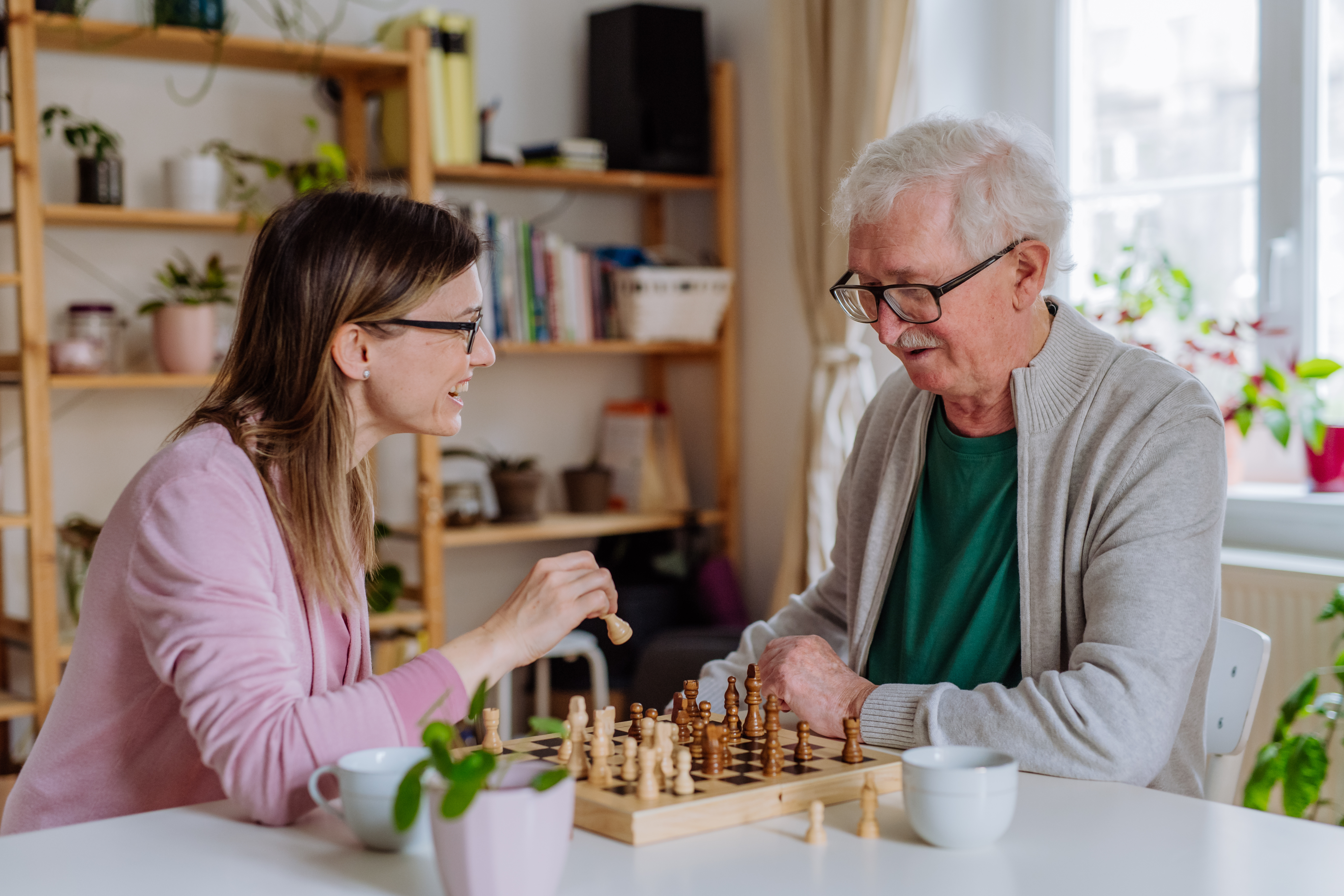How to find the right community support group for your needs

Finding the right community support group can be a transformative experience, offering emotional support, practical advice, and a sense of belonging. Community support groups come in all shapes and sizes and can be found at local community centers from churches to coffee shops. By understanding the types of support groups available, assessing your personal goals, and exploring resources, you can join a group that supports you.
Facing a sudden health diagnosis. Stepping into the role of a caregiver for a loved one. Processing grief after losing a loved one. If you’re dealing with a difficult situation in your life, you may feel overwhelmed, alone, or distressed. Heck, anyone would.
Joining a community support group can give you a space to connect with other people who understand what you’re going through, share your experiences, and receive emotional and practical support.
What is a community support group?
Community support groups are a gathering of people who share their common experiences, challenges, and goals. They’re a casual, safe space where you’re not alone and other people understand what you’re going through because they’re going through something similar themselves. It’s about creating a network of understanding and encouragement where you can share experiences, tips, and practical advice about what you’re going through.
Types of community support groups
If you’re dealing with something challenging in life, chances are there are other people who are going through something similar. There are many types of community support groups, each focusing on the specific needs of its members. These focus areas can include:
Caregiving
Retirement
Chronic illness
Injury recovery
Veterans
Grief support
Addiction recovery
Weight loss
Depression
Disabilities
Health-related support groups are common for people dealing with diabetes, weight loss, cancer, or chronic illnesses. Caregiver support groups are a great space to talk about your experiences taking care of a loved one. While the subject matter may vary, all support groups serve to connect people facing similar life challenges.
The structure of support groups can vary too. Peer-led support groups are meant for people to converse about their experiences in an open forum with a facilitator helping guide the discussion. A professionally led support group is often led by an expert and focused on educating a group about a topic.
Benefits of community support groups
Community support groups can offer you a wealth of benefits, especially for older adults or caregivers.
Develop Coping Skills: You’ll learn practical strategies and techniques from people who have navigated trauma and difficult emotions with success.
A Safe Environment: Judgement is left at the door so you can comfortably exchange advice, offer emotional support, and learn from other’s experiences.
Peer Socialization: Getting out of the house and seeing other people is a great way to improve your mood and pick up on energy around you.
Motivation and Accountability: Support groups are like having a best friend — one that encourages you and holds you to your goals, whether they are related to health, caregiving, or personal growth.
Resource Access: Many support groups can either directly provide or give you access to additional resources like educational materials, guest speakers, or connections to professional services. Something that helped another person might just help you, too.
Determining the right support group for you
When you’re deciding on which support group is right for you, consider these questions:
Why do you want to join a support group?
Knowing why you want to join is a great first step when deciding which group is right for you. You may be looking for emotional support, practical advice, or a place to connect with others who understand your experiences. Identifying your primary reasons can help you find a group that aligns with your needs.
What do you want to get from and give to a support group?
Consider what you hope to gain from participating in a support group, such as coping strategies, a sense of community, or both. Also think about what you can offer in return whether it’s your own experiences, a listening ear, or advice.
What type of group setting do you prefer?
Think about whether you’re more comfortable at an in-person meeting, in an online virtual group, or in a hybrid model.
How often can you commit to attending meetings?
Determine the frequency of meetings you can attend. Support groups can meet weekly, bi-weekly, or monthly. Consistent participation is key to getting the most out of your group.
From there, you’ll be able to decide what kind of group is right for you whether it focuses on mental health, chronic illness, aging, or caregiving. Once you’ve chosen the type of support group it’s important to consider factors like cost (many support groups are either free or low cost), meeting times, meeting locations, group size, and group structure.
Finally, you may want to attend a few sessions on a trial basis to see if the group dynamics and support are a good fit for you.
What to expect during a community support group
You may feel like joining a support group is like looking for a lunch table when you’re the new kid in school, but the truth is, support groups are specifically designed to be welcoming and inclusive. Knowing what to expect, however, can help alleviate any apprehensions. Here’s what you can generally expect during a support group meeting:
Introduction: You and other members of the group can share your names and an overview of why you’re attending. The group facilitator, either a peer leader or a professional, will often outline the meeting structure and establish any ground rules to ensure a respectful and supportive environment.
Discussion: Some support groups may include an open discussion, where members can share their experiences and challenges. You’ll have a chance to speak and listen to others.
Activities: Depending on the group there may be guided exercises or topic-focused conversations.
Conclusions: After discussions and activities, meetings may conclude with a summary of key points discussed and information on upcoming sessions or other resources.
Remember, participate at your own pace. When you first join a meeting, you may want to get your bearings with the group. Whether you’re actively discussing, listening, or simply being present make sure the support group is helpful and productive for you.
Finding support groups in your area
You can find community support groups at your local community center, library, hospital, church, school, or coffee shop. Some apartment buildings host activities and events such as support groups, so there might be a community support group not far from your doorstep.
To find a local support group, it’s helpful to consider what type of group you are looking for. If you’re looking for a disease- or diagnosis-specific group, visiting an online association related to that illness is a great place to start. Many hospital systems also offer disease-specific support groups.
If you’re looking for caregiver support groups such as grandparents raising grandchildren, veteran’s groups, etc., a senior center or your local Area Agency on Aging will likely have local support groups resources or be able to direct you to appropriate options.
Virtual support groups are hosted online and usually allow for higher attendance and often do not have a fee associated with them. They also allow for more groups to be hosted since a specific space is not needed.
Telephonic support groups can have a structured time where participants call in to share their experiences, or they may have more of an open helpline type of structure. For example, the Alzheimer’s Association offer a 24/7 helpline staffed with qualified individuals ready to provide support for caregiver challenges. Telephonic support options are helpful for those who may not be comfortable attending a group in person yet, but still want the supportive services available to them.
How to support someone joining a community support group
Supporting a loved one who is in a support group begins with active listening, empathy, and encouragement. Offering validation and acknowledging their feelings can make a huge difference in making them feel understood and accepted.
If you have a loved one that’s on the fence about joining a support group, talk with them to see what might help them best. It could be as simple as offering transportation or attending their first session with them.
Do what works for you
Taking the time to research community support groups in your area can lead you to building meaningful connections with other people who share your experiences. Whether you’re seeking help for a specific issue or simply looking to connect with others, community support groups can provide the encouragement, support, and resources you need to thrive.
Get home care that's right for you
Search the CareScout Quality Network for a home care provider that's been vetted for rigorous quality standards.






